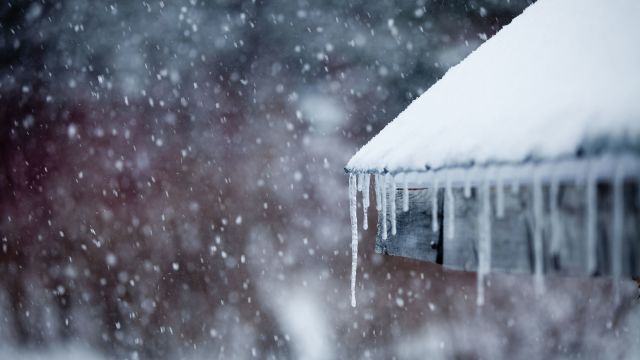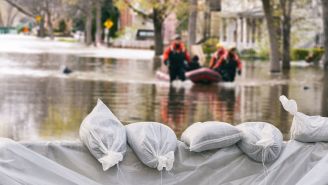Uh oh. The evening news is showing ominous weather maps, the salt trucks are out and long lines are forming at the supermarket. There’s a blizzard coming, and you’re in the path. The good news is you know it’s coming and there’s time to get ready—but don’t delay.
Prep your house
Before the storm hits, gather these supplies:
- Three days’ worth of food and water (about a gallon per day) per person
- Flashlights and extra batteries
- First aid kit
- A week’s worth of any medications your family needs
- Battery powered or hand-crank NOAA radio
- Firewood if you have a wood-burning stove
- Working smoke alarms and carbon monoxide detectors
- Pet food and additional water if you have pets
- Board games, coloring books, playing cards, etc. so the kids (and adults) don’t get too stir crazy
Prep your car
If at all possible, avoid the roads. They’ll be icy and dangerous, with low visibility. Keep these items stocked in case you’re ever caught in a snow storm. You’ll need:
- A full tank of gas and high fluid levels
- A first aid kit
- One or more blankets
- Warm clothing, including gloves and socks
- Snacks and water
- A small shovel
- An ice scraper and brush
- Flares and a distress kit
After the storm
Follow these tips to dig out safely:
- Keep your snow shovels, rock salt and sand easily accessible in the house or garage. They won’t do you much good if you have to trek through the backyard in two feet of snow to get to the shed.
- Practice good shoveling technique. Don’t hunch over; lift with your legs as much as you can and push the snow aside instead of throwing it over your shoulder.
- Dress in layers, and change clothing when you start to sweat. Body temperature can go haywire when exerting yourself in cold weather.
- Recognize signs of frostbite: numbness and pale or white color on exposed skin, such as fingers, backs of hands, ears and nose.
- Recognize signs of hypothermia like uncontrolled shivering, slurring of speech, disorientation, memory loss and exhaustion.
- Keep hands and feet away from snow blowers, and always turn it off when performing maintenance like clearing ports or topping off the gas tank. Never start a snow blower in the garage; carbon monoxide exhaust in confined spaces can kill.
- Don’t forget to clear the exhaust ports and pipes of your furnace, dryer and sump pump.
- Be sure the tailpipe is clear of snow, especially if anyone is sitting inside the car with the engine running.
More tips
- Make sure wood-burning stoves are vented to the outside.
- Keep fire extinguishers around the house and make sure everyone knows how to use them. Avoid using candles, as they can be a fire hazard.
- Keep space heaters at least three feet away from furniture and window coverings and don’t let children or pets near them.
- Never use generators, grills or propane heaters indoors.
- If the power goes out, eat and drink; your body needs calories to produce heat.
If you follow these tips and precautions, you should be on your way to safely come through—and recover from—a winter storm.
Medically reviewed in April 2020.






